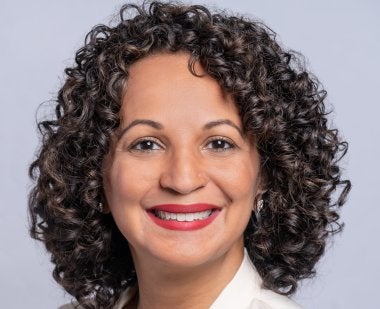Faculty Q&A: Jennifer Amilivia

Faculty Q&A with Clinical Assistant Professor Jennifer Amilivia
Dr. Jennifer Amilivia is a Clinical Assistant Professor in the Department of Counseling, Higher Education, and Special Education. Dr. Amilivia's research focuses on educator development and preparation. This faculty Q&A was conducted by COE student Claire Nelson.
Could you go in-depth on what your research and projects focus on?
My research focuses on two areas: teacher preparation and partnerships with families from culturally and linguistically diverse backgrounds. My research in teacher preparation examines the benefits of blended early childhood preservice programs. I want to contribute to this line of research by examining the benefits of dual certification for early childhood educators. Here at Maryland, our program is unique in the sense that we have a cross-department blended early childhood/early childhood special education program. My goal is to further the research in this area in the hopes that more universities will adopt this model for early childhood teacher preparation.
My second focus is on partnerships with families which is an extension of my dissertation research. I want to examine how we prepare early childhood educators to build respectful and trusting relationships with all families including those from culturally and linguistically diverse backgrounds. In early intervention/early childhood special education, partnerships play a significant role in how educators and service providers engage with families to select appropriate supports that meets their child’s strength, needs, and priorities. Trusting partnerships is also a critical component of joint decision-making. When educators and families make joint decisions about a child’s individual supports, the family’s values and beliefs should be included. My dissertation research focused on developing a reciprocal decision-making process model that engages both educators and families. My goal is to continue that line of research.
How did you become interested in early education research?
I first became interested in early childhood education because I enjoyed observing how young children solve their problems. The way children think is quite fascinating to me. As an educator, I wanted to understand how children construct their knowledge based on their individual experiences. My interest in early childhood special education comes from a more personal experience. My older sister has two adult children who were identified with special needs when they were in preschool. Her oldest was diagnosed as mildly hearing impaired. Her second child was first diagnosed with intellectual disabilities and then later diagnosed with specific learning disabilities in middle school. Observing my sister’s struggle to be included in the decision-making process with her children frustrated me. Coming from a diverse background and being a teen mother did not make it easier for my sister. This experience made me aware of how we need to be more inclusive and supportive of family’s individual differences and circumstances.
What advice do you have for students, or anyone interested in education research?
My advice to students or anyone interested in educational research is to be passionate about your interests and pose challenging questions. Developing research questions and finding ways to answer those questions will help us move early childhood/early childhood special education research forward. If you love what you do, then it does not feel like work.
What is the most rewarding outcome from your work, either research or teaching?
My most rewarding outcome is my teaching. I like working with preservice educators. I enjoy scaffolding their learning to help them build their teaching skills. It’s rewarding to work with preservice educators because you get to observe their professional skills develop over time.
What impact do you believe joining UMD will have on advancing your research?
I have the opportunity to collaborate with the faculty across the college of education. Cross-disciplinary research provides opportunities to explore the interrelationships between disciplines. This type of research provides a deeper understanding of complex educational challenges and stakeholders’ engagement with issues that impact early childhood education.



